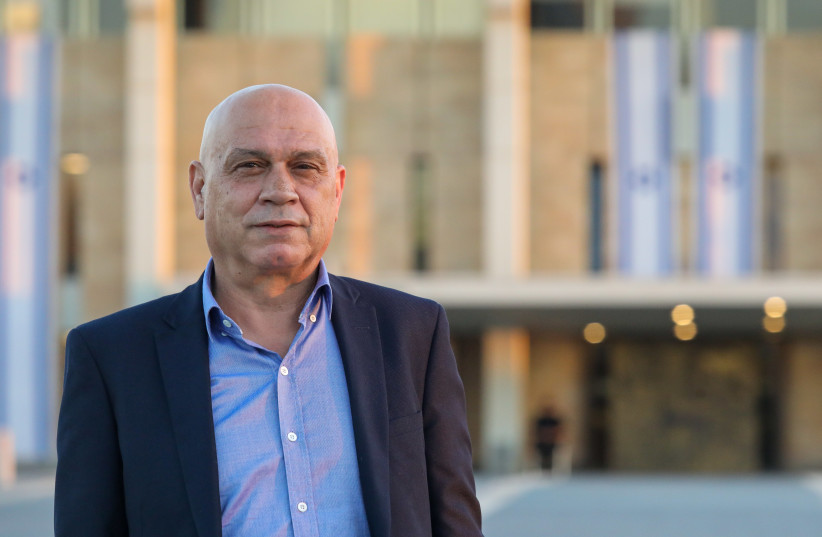Last week, two bombshells were dropped on the Israeli political arena.
On the right side of the map, Likud MK Yuval Steinitz announced his resignation from politics. On the left, Meretz’s minister Issawi Frej announced the same thing.
Why these bombshells? For each camp, it represents the direction it is heading — and both are going the wrong way.
“I am very proud of what I did in the Knesset and in the government."
Issawi Frej
<br>Twin bombshells
Steinitz is a long-time Likudik. He has served as an MK for 23 years and filled major positions such as finance minister, energy minister (approving the “gas outline” during his tenure), and chairman of the Knesset Foreign Affairs and Defense Committee.
In a video he posted on social media, Steinitz said that he needed “some fresh air.”

“I want to thank all Likud members and all of Israel for the privilege I had to serve the country and help it thrive,” he said. “I hope that the upcoming election brings an end to the political chaos that has been going on, and allows for a national government headed by [former prime minister Benjamin] Netanyahu.”
Frej’s announcement had almost the same tone. He wrote in a Facebook post that he intends to “take a break from political life, but not from public life.”
“In the next two months, I will be working with all my power to [help Meretz] win the election. I will work in the Arab society to convince people to get out and vote, and thus people will see that I’m working without any personal interest,” he wrote.
“I am very proud of what I did in the Knesset and in the government," Frej said. “I invested my efforts, as much as I can, to promote and strengthen the relations between Jews and Arabs in Israel and to deepen the relations between Israel and its citizens with the countries of the region.”
<br>Different politics, same tone
Although they’re coming from two different sides of the map, the same tone could be heard in their resignation statements.
Steinitz’s cry for “fresh air” came the same week that Netanyahu, via “cronies,” told the media that some of his party members “turned from an asset to a burden.”
In this, he meant to renounce statements made by a long list of Likud members. Recent examples of that are Yoav Kisch and Shlomo Karhi, who said last week that if Likud returns to power, it will get rid of Attorney-General Gali Baharav-Miara.
Since Netanyahu’s corruption trial began, Likud MKs were expected to defend him in media interviews, and at the same time bash the prosecution and the courts. Every other day we have heard threats against officials and remarks aiming at delegitimizing the legal establishment.
Steinitz, who did abide by the party’s new guidelines in the past few years, probably felt like enough was enough after his wife, Gila Kanfi-Steinitz, was appointed to the Supreme Court earlier this year. He probably could not see himself sitting side-by-side with those who wish to terminate the institution she works in.
Frej’s departure comes amidst heavy criticism in Arab society toward the Israeli Left. Dominant voices are saying that there is no room for Arabs in the rows of the Left and that the leftist parties — Meretz and Labor — became a home only for elite, arrogant, Ashkenazi Tel Avivians who don’t see Arabs as true partners.
Instead, we saw last week that the front runner for Meretz’s leadership is Yair Golan, who is the populist version of the Left.
The ex-general is perceived as the one who invests more time in fighting right-wingers on Twitter than advancing true and genuine partnerships with Israeli Arabs.
<br>The direction of our politics
Steinitz’s and Frej’s departure from politics therefore stem from the same source.
They are a sad testimony of the direction of our politics — shallow, populistic and personal – and about exclusion instead of being ideological, responsible and inclusive.
They also show us that the amount of hatred and filth that we have seen after four rounds of elections is still only the beginning.
All that is left is to hope that our representatives will manage to get a hold of themselves and remember that they are here to serve the people and not themselves. They have to remember their responsibility to keep the country together.
